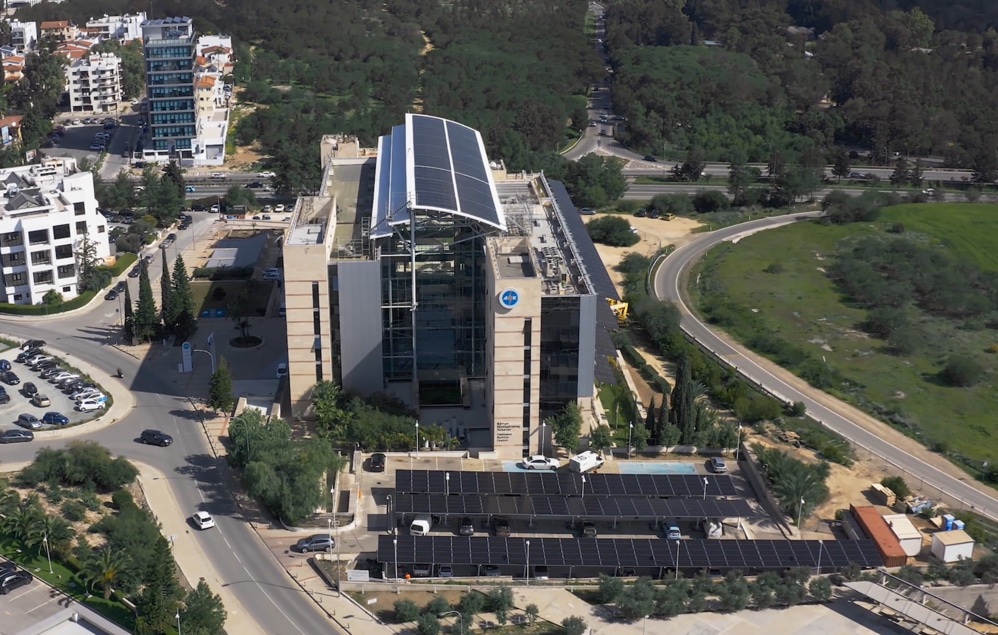The chief product officer of a Cypriot-based battery manufacturer which serves Russia and Asian and EU markets but does not sell products in its own backyard, has told pv magazine the lack of an energy storage policy means the island nation “is missing its chance to innovate and lead while we do have the resources and skills.”
Cypriot Andreas Procopiou said Watts Battery, which is preparing to move its headquarters to the United States, “would love to get into” the Cypriot market but, without a supportive policy framework, and with national utility the Electricity Authority of Cyprus (EAC) enjoying a monopoly on conventional power generation and the supply of electricity, there is little incentive, if any, to invest in storage.
Cypriot energy minister Natasa Pilides told pv magazine, via Twitter, that for storage, “home systems are already eligible for funding under our current funding program, while for large scale systems, funding will be announced after the relevant regulatory framework, which is being designed by CERA [the Cyprus Energy Regulatory Authority], is introduced.”
Whilst it is true Cyprus included residential batteries alongside PV in the systems eligible for a purchase subsidies program launched last month, the nation already has a net metering regime which is available to household solar. Without policy to further support energy storage, the owners of solar arrays have no great reason to invest in a home battery, purchase incentive or no.
Lack of smart energy vision
It is an example of putting the cart before the horse which Watts Battery's Procopiou remarked upon. “What surprises me is that the government announced financial incentives for household energy efficiency upgrades but [the] EAC does not have a framework and policies in place for such cases,” he said.
The situation is not helped by the near monopoly on power generation for the island held by the EAC. With the utility operating all Cyprus' natural gas and diesel facilities, and being the sole electricity supplier in the nation, the 10% or so of renewables in the Cypriot power mix are the only element not owned by the electric company. That is a situation which is unlikely to persuade the EAC to supercharge the energy transition, according to Procopiou. It exacerbates the lack of energy storage, he said, “as any new ideas, pilots, and frameworks need to be aligned with [the EAC's] interests.”
He added: “Our market is not in Cyprus, simply because there is no market [for energy storage], or at least not ready yet; with solar net-metering schemes being in place, the [battery storage] value proposition for grid-connected houses is not that obvious … Until energy storage becomes a reality in Cyprus, even if Cyprus ramps up the installation of renewable energy generation sources, primarily solar, their potential will be under-used, and electricity cost will not see a significant drop due to the dependence on traditional, fossil fuel generation.”
Outdated energy policy
That roughly 10% of the Cypriot energy mix supplied by clean electricity is short of the 16% goal which was set for last year.
The figure the state is aiming for by 2030 is “at least [a] 26% share of renewables in gross final electricity consumption.” In the meantime, EAC fossil fuel facilities will continue to burn fossil fuels to electrify one of the EU's most sun washed countries.
The government has at least taken a step in the right direction by announcing it is installing 405 photovoltaic systems on the rooftops of its public schools.
The first array was installed at the Athienou Primary School and the remaining 404 will be completed by March, the Cypriot government said, for a total 4.9 MW of solar generation capacity.
A previous drive which saw 114 public schools fitted with solar – securing 1 MW of generation capacity – was financed by feed-in tariffs paid for the energy generated. This time around, however, an EAC spokesperson told pv magazine the arrays will offer net metering payments, so schools can benefit by reducing their grid electricity consumption and, therefore, the size of their bills.
The project
The development of the new project is innovative.
Specifically, all 405 solar rooftops will belong to the Ministry of Education, however the construction, financing and operation of the project will be devolved to the EAC.
The authority split the project into 11 tranches of 30-40 schools so small engineering, procurement and construction (EPC) companies could participate in the tender. Depending on experience, EPCs could be allocated up to three schools tranches.
That led to stunning results, said the EAC spokesperson. Some 16 firms participated in the tender, which announced five winners. That meant the project is running very quickly, with all five EPCs working on different tranches.
Moreover, added the spokesperson, the high number of bidders meant very low bids were received and the overall cost of the arrays is lower than the project budget. The EAC’s initial budget was €9.6 million, out of its own funds, but the government has confirmed the cost of the program has come down to €9 million, reflecting the tender savings.
The new school solar rooftops will help the Ministry of Education save around €790,000 per year by generating up to 1.7 MWh of electricity on-site annually.
The Ministry of Energy and the EAC collaborated on the design of the project and opted for arrays of 3 kW, 5 kW, 10 kW, and 20 kW, depending on school size.
Net metering makes sense for schools, said the EAC spokesperson, because the electricity consumption calculations are carried out every March, enabling schools to transfer credits for electricity they generate during summer, when the buildings stand empty, to offset electricity bills from the autumn and winter terms.
The EAC will be responsible for the first 10 years of the project’s operation.
The authority spokesperson stressed the utility has itself embraced PV generation, by installing a 425 kW solar system at its headquarters in the capital city of Nicosia this year. Unlike the net-metered school installations, the EAC's solar panels will be financed under the nation's net billing regime, which shields the utility from being out of pocket by ensuring solar system owners are not paid more for excess power they generate over the year than the value of the grid electricity they consume.
This content is protected by copyright and may not be reused. If you want to cooperate with us and would like to reuse some of our content, please contact: editors@pv-magazine.com.



2 comments
By submitting this form you agree to pv magazine using your data for the purposes of publishing your comment.
Your personal data will only be disclosed or otherwise transmitted to third parties for the purposes of spam filtering or if this is necessary for technical maintenance of the website. Any other transfer to third parties will not take place unless this is justified on the basis of applicable data protection regulations or if pv magazine is legally obliged to do so.
You may revoke this consent at any time with effect for the future, in which case your personal data will be deleted immediately. Otherwise, your data will be deleted if pv magazine has processed your request or the purpose of data storage is fulfilled.
Further information on data privacy can be found in our Data Protection Policy.